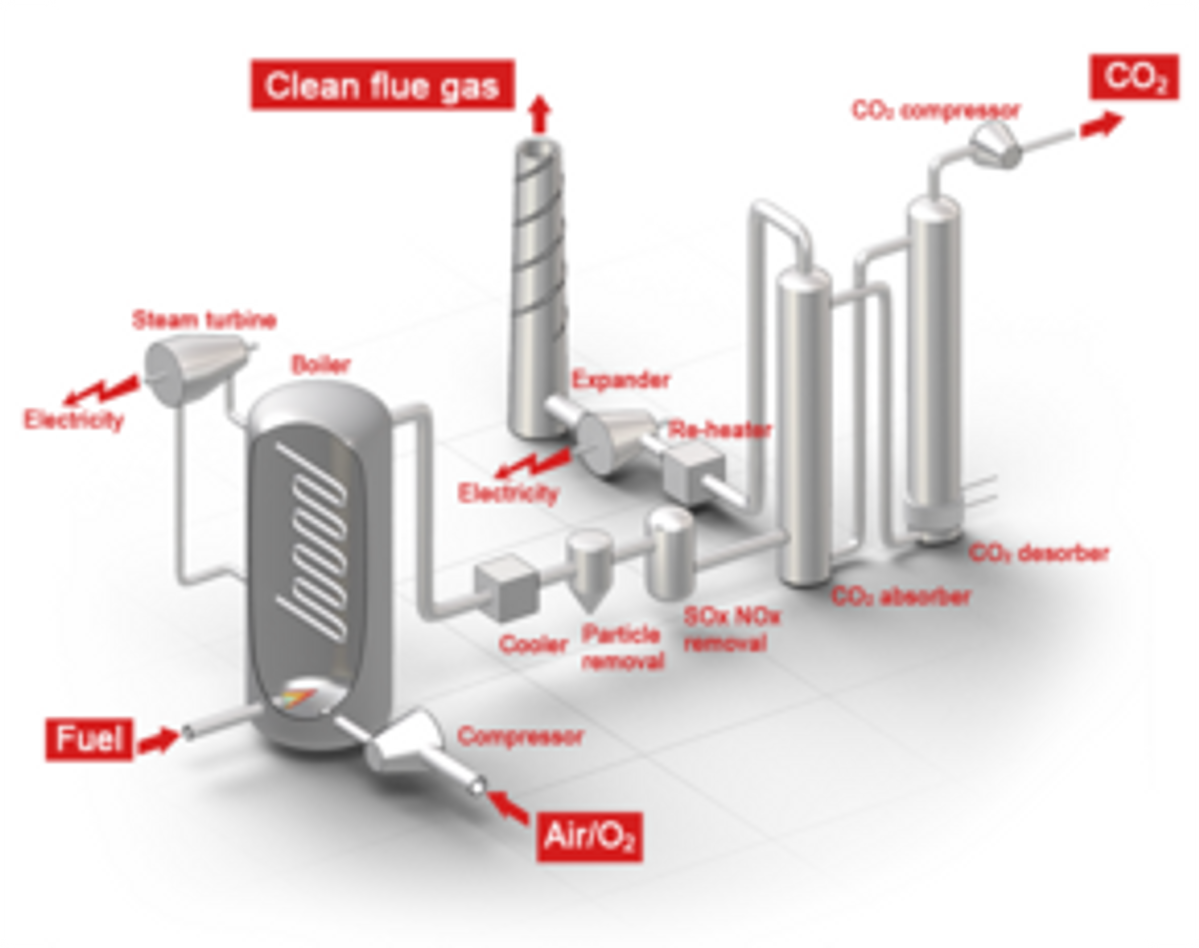General Electric and the Norwegian firm Sargas announced today an alliance to make and sell natural gas fired power plants in which 90 percent of the carbon dioxide will be captured from flue gases and sold for re-injection into the earth for enhanced oil recovery. The first two plants, consisting of GE's LMS100 aeroderivative gas turbines and Sargas's system for scrubbing CO2 from flue gases (diagram above), are to be built on the U.S. Gulf Coast and on the Norwegian coast. A GE-Sargas "clean gas" plant has also been under discussion for Malta.
The two companies say that their technology will be economically competitive, without government subsidies, at today's cost of carbon dioxide for enhanced oil recovery (EOR), which is about $30 per tonne in Texas, according to the Financial Times. As Sargas CEO Henrik Fleischer puts it, "Traditional EOR supplies of naturally occurring carbon dioxide stored underground is running out, and with oil prices expected to remain above $80/barrel, it is important for oil companies to maximize oil production with enhanced oil recovery. . . . Our solution . . . also offers low-emissions electricity, in a proven and practical manner."
Generally, proposed carbon capture systems have focused on coal, because coal is so carbon-intense and its use still is so widespread in countries like China, India, and the United States. But as prices of natural gas have dropped with the advent of fracking, and as gas-fired electricity generation has rapidly displaced coal (at least in the United States), a system for capturing carbon dioxide from gas turbine plants is naturally attractive. Its appeal is all the greater as prospects for a nuclear renaissance have waned--at least in the United States.
Replacing a coal-fired electric power plant with a nuclear plant cuts greenhouse gas emissions virtually to zero; replacing the coal plant with the new GE-Sargas system would accomplish virtually the same thing. But, promising as the technology may be, the timing of the GE-Sargas announcement raises an obvious question. Brent crude oil prices have dropped from $120/barrel in the first quarter of this year to $95/barrel, and some other indexes of global oil prices today are hovering not far above $80/barrel, the level at which Fleischer says the new system will be competitive and commercially attractive. If the global economic recovery continues to falter and oil prices continue to plummet, it will be interesting to see whether GE and Sargas are able to stick with their plans.



